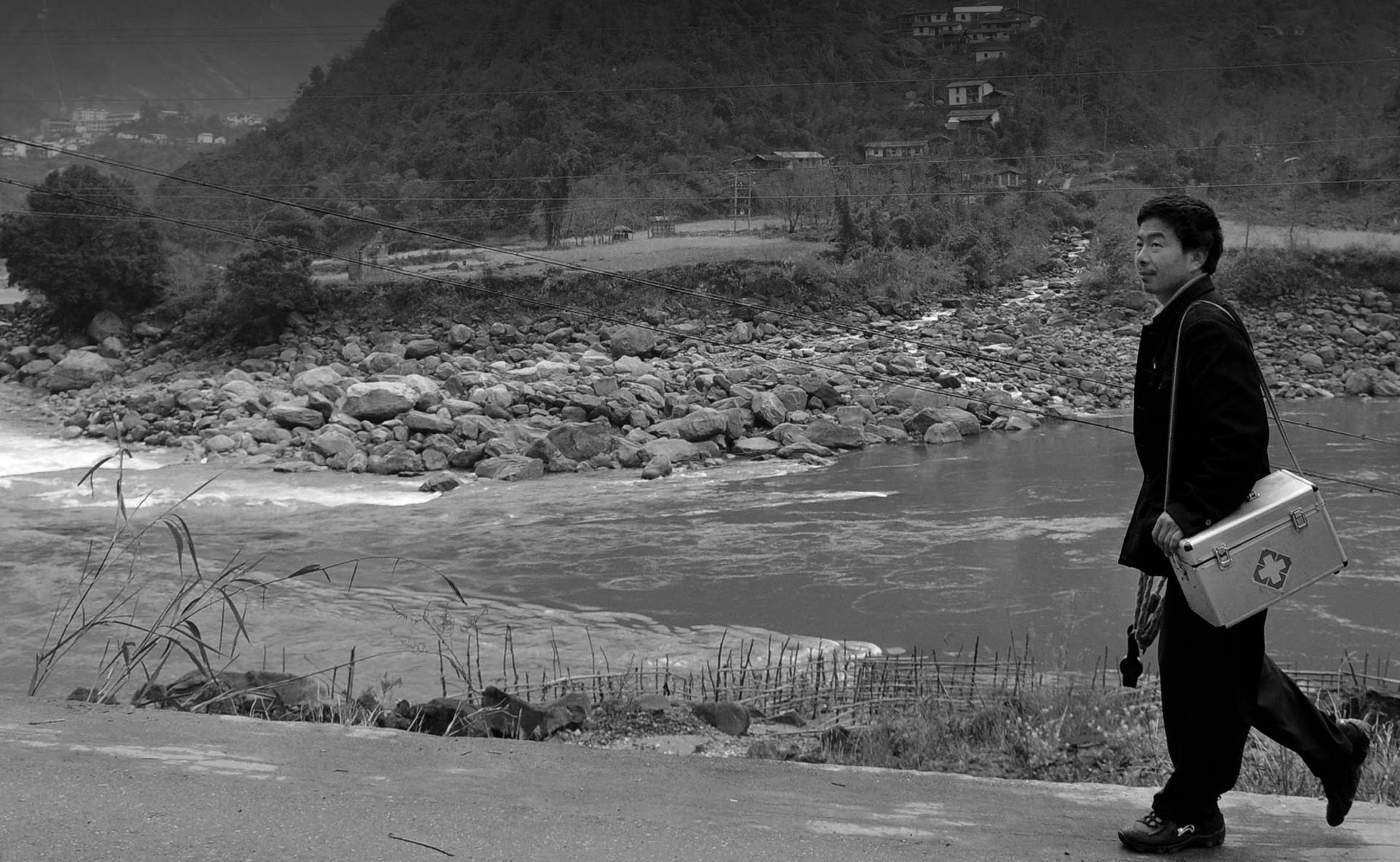ACCESSING QUALITY PRIMARY CARE is challenging in China. More than 600 million people—almost half the country’s population—live in rural areas. The rise of chronic conditions like diabetes and lung disease, combined with an aging population, has strained China’s medical system.
Since the beginning of 2018, 349 villages in the Henan province have received diagnostic tech packs developed by the startup WeDoctor. Each one can perform 11 basic medical tests. The stations are small enough to fit in a backpack, making them easy to transport to remote village clinics. If the initial Henan program is deemed a success and more are distributed, the packs could play a vital role in the future of rural healthcare.
There have been significant improvements to Chinese healthcare in recent years, but major cities have seen almost all of the progress. Rural residents typically still rely on village doctors. An article published in The Lancet in 2016 emphasized that “village doctors cannot meet the growing healthcare needs in rural areas.” Overworked and underpaid, village doctors often lack the updated medical training necessary to treat complex conditions. Even if local doctors all received additional education, there still would be too few of them.
As a result, people from rural areas often must travel hours to the nearest city for essential medical care. Bus fares are costly, and there are added expenses if patients miss the bus home and have to stay the night. Even waiting in line can have a price: Scalpers prey on the desperate, reselling appointment tickets for as much as 15 times their original value. Wealthier patients sometimes pay “professional queuers” to wait in line for them.
The Chinese government has partnered with WeDoctor for the tech pack program, since improving elderly and chronic disease care is a core part of the government’s five-year plan through 2020. The results are securely uploaded online and shared with big-city doctors. This minimizes the need for rural patients to travel long distances or see specialists for simple diagnostic tests. If specialists are required, they can videoconference with their patients and monitor their conditions with follow-up tests as needed.











